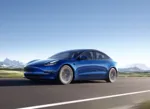By James Tew, Ivendi chief executive
When I spend £5 on a CD, Amazon deliver it to me. When I spend £20 on pizzas, Dominos bring them to my door. When I spend £30,000 on a car, I have to go and fetch it from the dealership.
Of course, if I made a fuss, there is a good chance that I could persuade the dealer to deliver but the assumption that the customer will go to the dealership reveals something fundamental about the motor industry. The industry believes that the customer wants to go to them.
Now, I have bought a few cars in my time and spent a lot of time in dealerships and, while they have clearly had a lot of money invested in them and are relatively pleasant environments, there are far nicer places to be, like home. If I call a dealership and indicate that I am a serious customer who is willing to spend a significant sum of money on a new motor, why can’t they bring it to me for a test drive?
In this respect, the motor industry is some distance adrift of almost every other area of retail. The rise of e-commerce means that the premises of the retailer are less and less important, a trend most noticeably seen in the decimation of the High Street. Of course, there remain some purchases where what you might call the “retail experience” is crucial – if I could afford to buy my wife a Tiffany necklace, I’d like to do it at Tiffany’s – but they are few and far between and, crucially, these retailers promise a level of high margin, individualised customer service to which the average dealership cannot lay claim.
What is the lesson here? A simple one. Customers are increasingly accustomed to the retail experience being delivered to their door in a highly efficient manner. The motor industry is not insulated from this trend and should be looking at new ways of using e-commerce to take the dealership to the consumer. Putting the premises first is 20th century thinking.

















martin knowles - 19/06/2013 16:40
I was test driving cars at customers homes 25 years ago! I don't know a dealer who would not do likewise